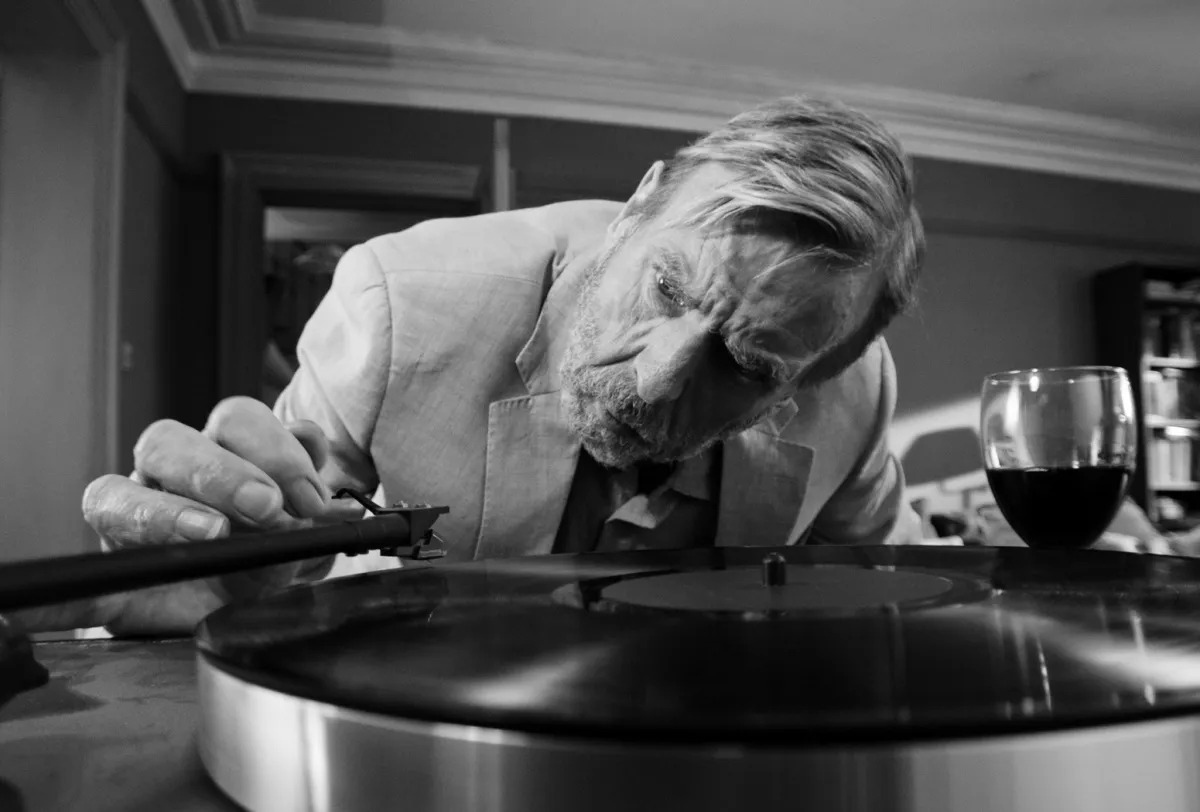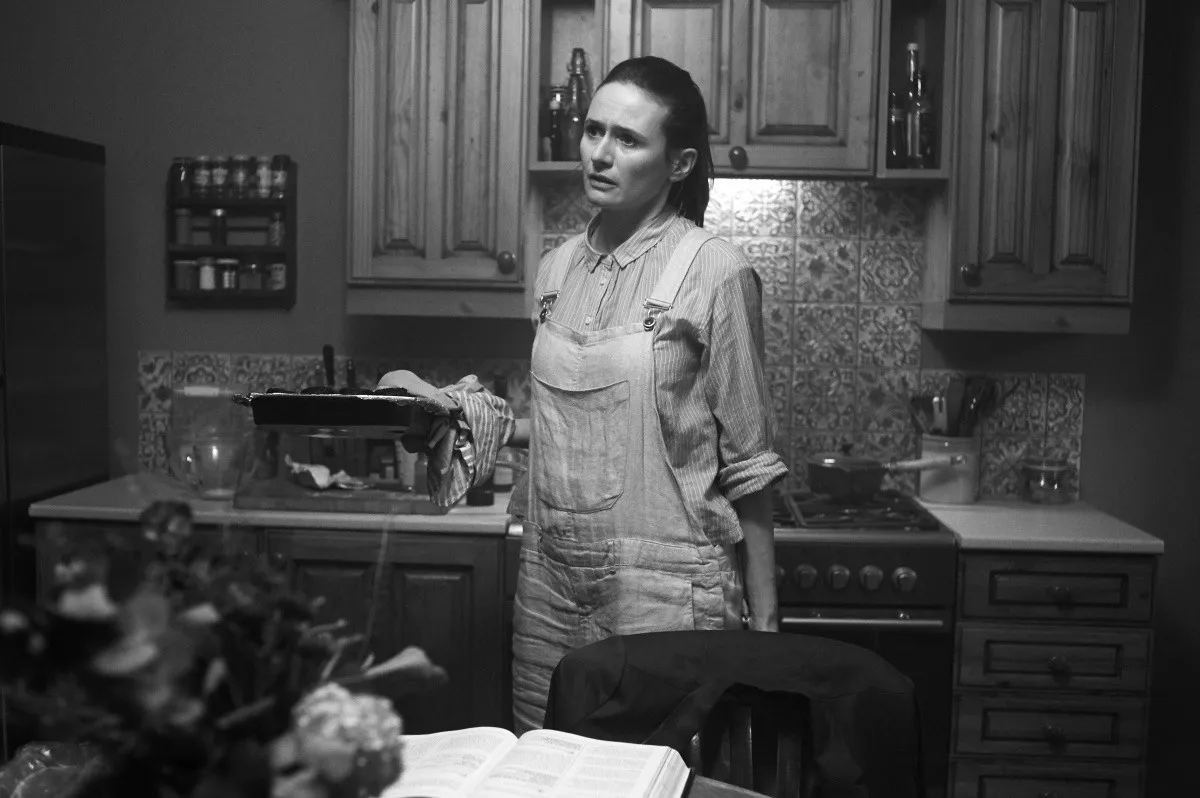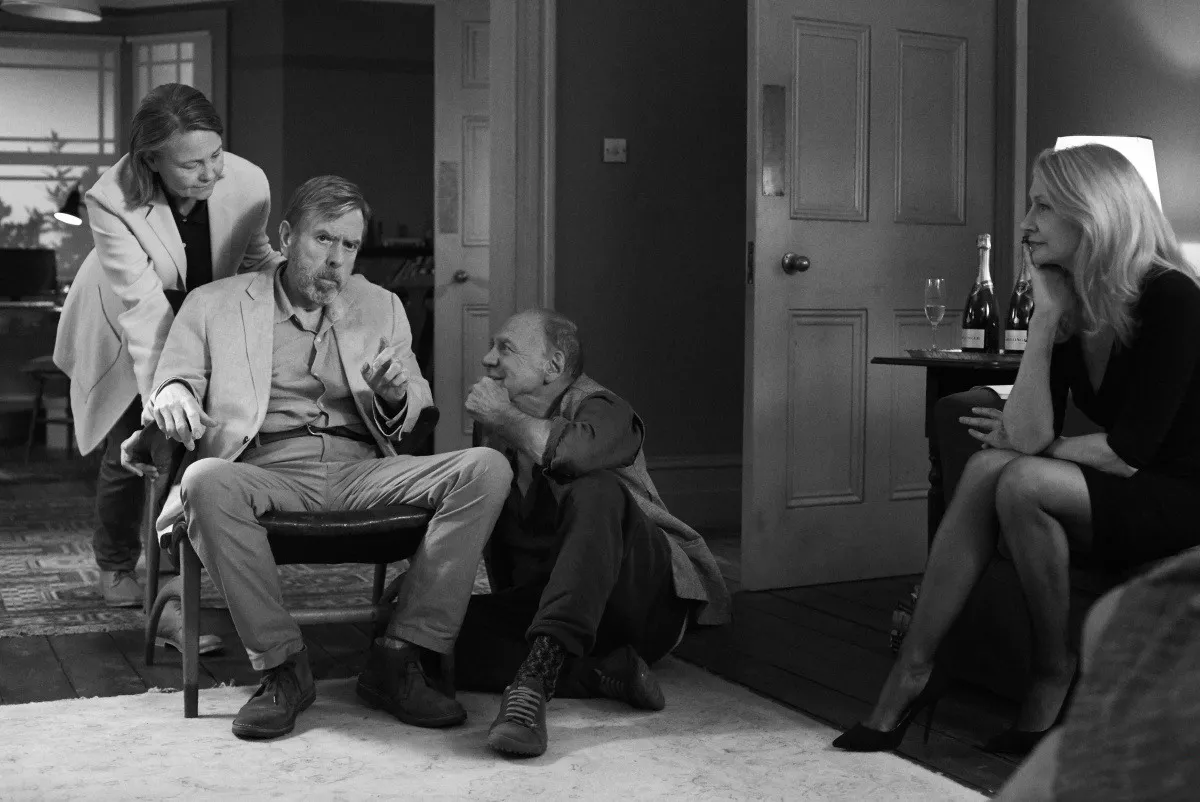A Pretentious Pseudo-Intellectual Satire Where Actors Suffer
A pompous, pseudo-intellectual attempt at satire, where the actors are tortured within the confines of poorly written characters and a contrived conflict.
Janet, an idealist, is elected to a leading political position. To celebrate, she throws a party for her closest friends and their spouses. The guests include April, a cynical realist, and her husband Gottfried, a karma-cleansing practitioner; Jeannie and Martha, an older same-sex couple expecting triplets; and Tom, a financier whose wife, Marian, Janet’s subordinate, is running late. As they await dinner, the group exchanges barbs and harmless reproaches, pointing out each other’s flawed worldviews. However, the meal never makes it to the table. In the midst of the gathering, Janet’s husband, Bill, announces that he is terminally ill and wishes to spend his remaining days not with his wife, but with Marian, his longtime mistress…

Timothy Spall, who plays Bill, dying of cancer, bravely battled the disease himself from 2010 to 2012 and emerged victorious.
Ah, the passion of arthouse directors for theatricality! They would rather lock the audience in a dark cinema and force them to watch a play, where a handful of actors are confined to four walls with pages of text each, instead of an energetic film with changing locations, action breaking free, and characters developing numerous connections. This is, of course, ironic, but even the most daring viewer should be prepared that Sally Potter’s “The Party” is a chamber drama, the plot of which unfolds within a single house and involves only seven characters. And it’s in black and white – don’t say we didn’t warn you.

The film’s cinematographer is 70-year-old Russian Aleksei Rodionov, whose filmography includes such works as “Come and See,” “The Muslim,” and “Admiral.”
What is “The Party” About?
So, what exactly is “The Party”? The author, Potter herself, who also wrote the screenplay, believes she has created a satirical black comedy. The actors, who are far from the worst, are assigned stereotypical roles – as if they randomly picked cards with characteristics and stuck them to their foreheads. There are virtually no nuances in the film; the characters are templates, “human blanks,” trapped in “situational blanks.” The synopsis rightly notes the characters’ worldviews, as this is practically all we know about them: Jeannie is a pregnant simpleton, Tom is a jealous drug addict, Janet is a senator secretly cheating on her husband, Martha is a professor studying the social status of women, Bill is a materialist secretly cheating on his wife, April is a cynical misanthrope, and Gottfried is an esoteric. The director is interested in pitting these semi-humans, semi-dolls against each other, but will the audience find it interesting?

Exploring Familiar Themes
What are we supposed to see? That infidelity hurts a sensitive person? That a woman who has dedicated herself to her career and missed her husband’s affair will be furious when everything is revealed? That pregnancy will be a serious test for any couple? That news of a wife’s infidelity will drive a jealous man crazy? Nothing new here – any reasonable person can easily simulate such a situation, especially when operating with such simple, chess-like characters. Perhaps we were meant to see that the prim “high society” and “elite” will flounder like puppies in water if their lives encounter unforeseen circumstances? Well, such a bucket of cold water will “cheer up” anyone, regardless of academic degrees or political rank.

Is It Supposed to Be Funny?
So, maybe we were meant to laugh? Look how funny the well-groomed aristocrats are with their love for classical jazz, elegant dresses, and expensive champagne when it comes to everyday squabbles. Ha-ha, one punched another in the face! Ho-ho, lesbians are arguing! Oh, hold me, a homeopath recommends breathing exercises to a cancer patient. Funny? Not at all. On the contrary, it’s a rather crude and straightforward demonstration of how fragile our cocoon of comfort is – just one blow, and we fall apart, connections break, flexibility disappears, anarchy ensues, and anger comes to the forefront. Bitter humor and extremely inappropriate.
“The Party” is very difficult to take to heart. The film lasts only an hour without credits, but that time drags on agonizingly long. The author has created several diverse types, but none of them are likeable, either before or after the boil is lanced. Finally, the actors deliver machine-gun fire of dialogue, but for the most part, it’s empty words, dragging out an already unbearably boring swamp. No matter how much the actresses wring their hands, how much Timothy Spall stares at the ceiling, how much Cillian Murphy twitches, there is no more life in this than in a nursery rhyme about a king, a prince, a queen, and so on. Speak quickly, don’t delay good and honest people.